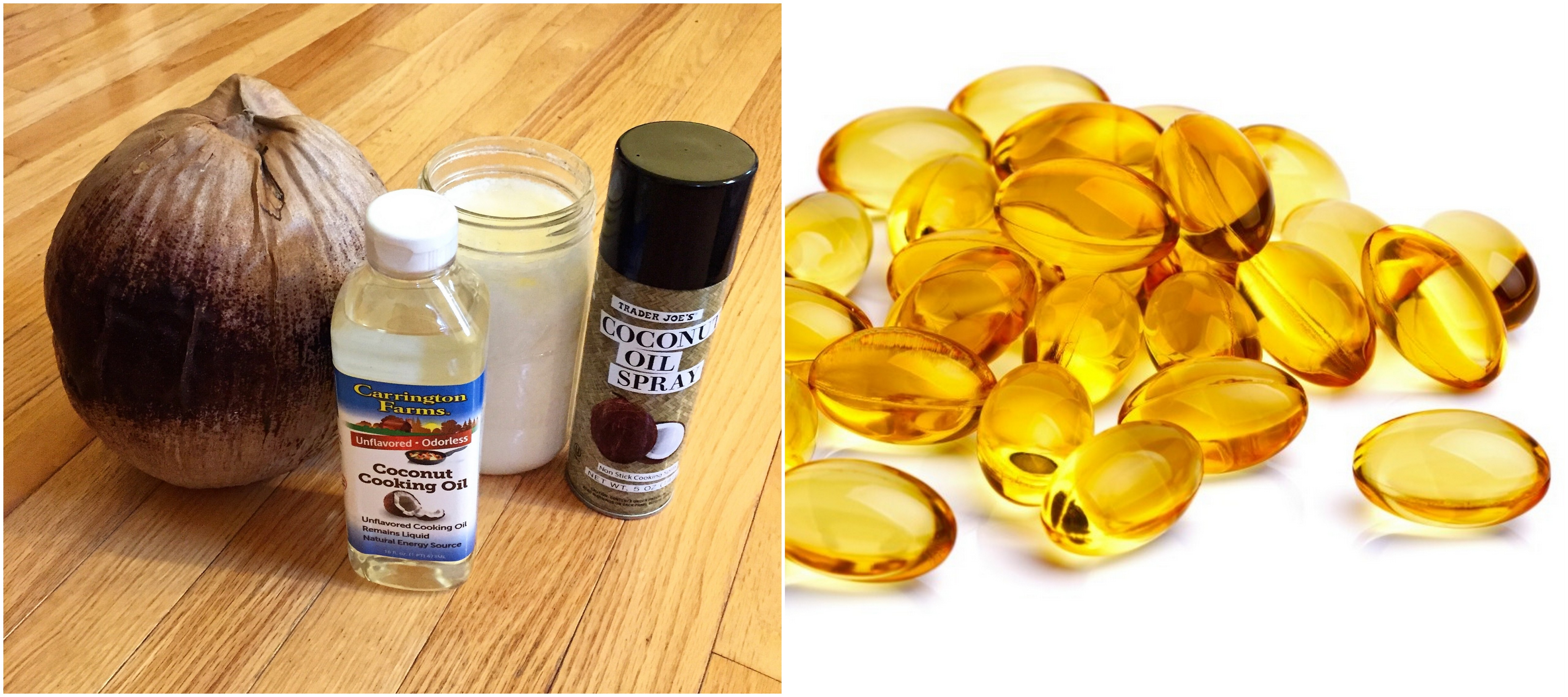 Fish oil supplements containing omega-3 are not as beneficial as many popular health studies have claimed. If you look more closely at the science behind these studies, you’ll find that adding fish oil to the diet does not truly increase heart health or produce a healthier omega-3:6 ratio. To learn more about why fish oil and omega-3 should be avoided, read my previous blog posts, The Truth about Fish Oil and Omega-3: “Good News” and Bad News. To reap the desired benefits of fish oil, instead take coconut oil and eat a well-balanced diet.
Fish oil supplements containing omega-3 are not as beneficial as many popular health studies have claimed. If you look more closely at the science behind these studies, you’ll find that adding fish oil to the diet does not truly increase heart health or produce a healthier omega-3:6 ratio. To learn more about why fish oil and omega-3 should be avoided, read my previous blog posts, The Truth about Fish Oil and Omega-3: “Good News” and Bad News. To reap the desired benefits of fish oil, instead take coconut oil and eat a well-balanced diet.
Fish oil supplements are not all they’re cracked up to be. For better health, replace the fish oil with coconut oil. And eat a diet that is high in fruit and whole foods.
What Makes Coconut Oil a Better Alternative?
Coconut oil is a much healthier source of fat as opposed to fish oil. The omega-3 fatty acids in fish oil are a class of “essential” polyunsaturated fatty acids (PUFAs) that are actually quite detrimental to health and cause damaging effects in the body. Coconut oil, on the other hand, is high in a type of saturated fatty acid called lauric acid. It does a far better job of providing the benefits supposedly provided by fish oil supplements. Lauric acid is a medium-chain triglyceride that is very resistant to oxidation (damage by oxygen) and is very easily used by the cell as energy. Lauric acid has the ability to interrupt the damaging effects of PUFAs and aid in the process of healing. It reduces oxidative stress and improves cholesterol, metabolism, liver function, and immune activity.
What’s the Best Form of Coconut Oil?
The best option is the fractionated portion called liquid coconut oil. Liquid coconut oil is sold in pills or bottles and is more expensive than traditional coconut oil, but it is higher in Medium Chain Triglycerides and therefor is more efficient in delivering the metabolic benefit. However, regular coconut oil works as well.
A Whole Foods Diet for Even Better Health
Coconut oil is a great replacement for fish oil, but even better would be a whole foods diet that is high in fruit and contains healthy fat sources (not PUFAs). Remember that when it comes to real food versus pills, real food is always better. Consuming a healthy diet that is low in PUFAs and high in fruits and whole foods will improve your health by naturally balancing the ratio of omega-3:6 in your body. Foods with a naturally healthy ratio include seafood, meat and eggs from well-raised animals, grass-fed milk, and other healthy milk products.
A whole foods diet will promote the optimal function of the body and reduce the need for any type of supplement—even the fractionated coconut oil.
Enjoy learning about health from a scientific perspective and digging into the truth behind popular notions in health and nutrition? Sign up for my monthly newsletter.
Want to try a new workout method that’s great for spine health, strength and stability, and flexibility? Join me for ELDOA group classes right here in St. Louis!







